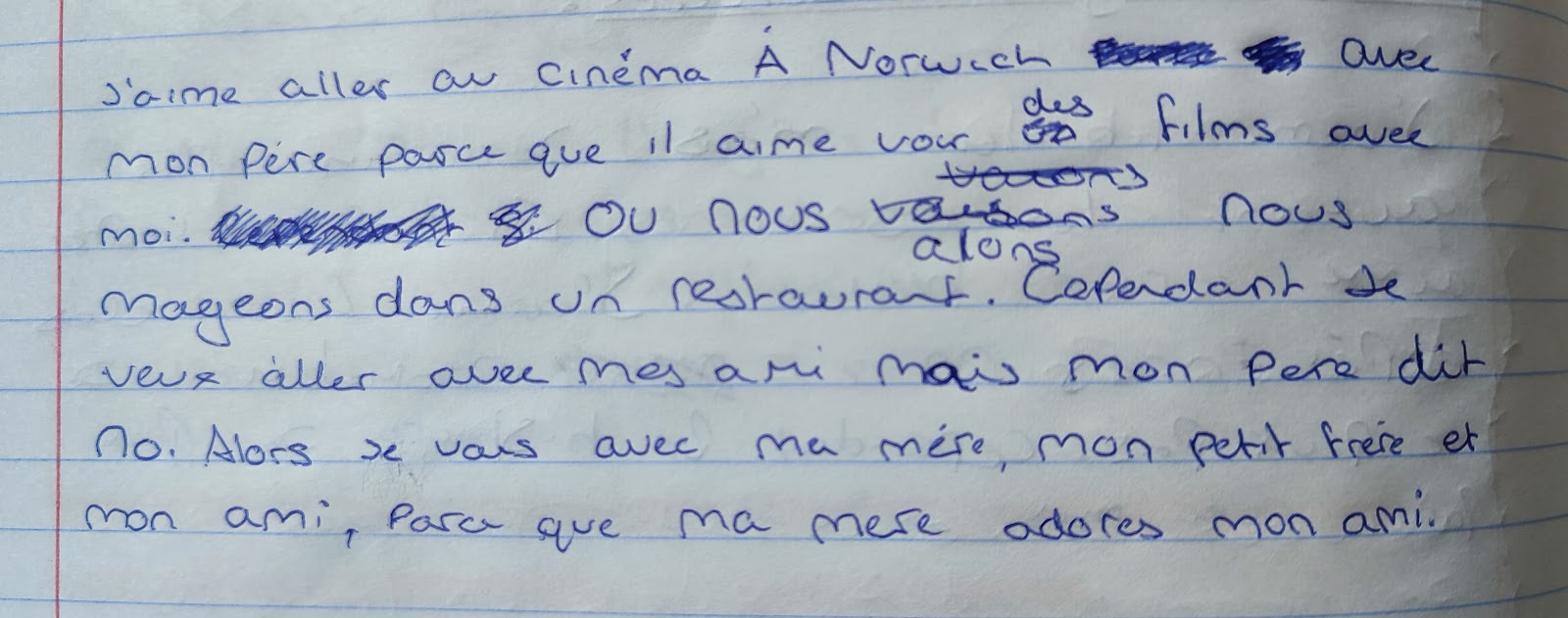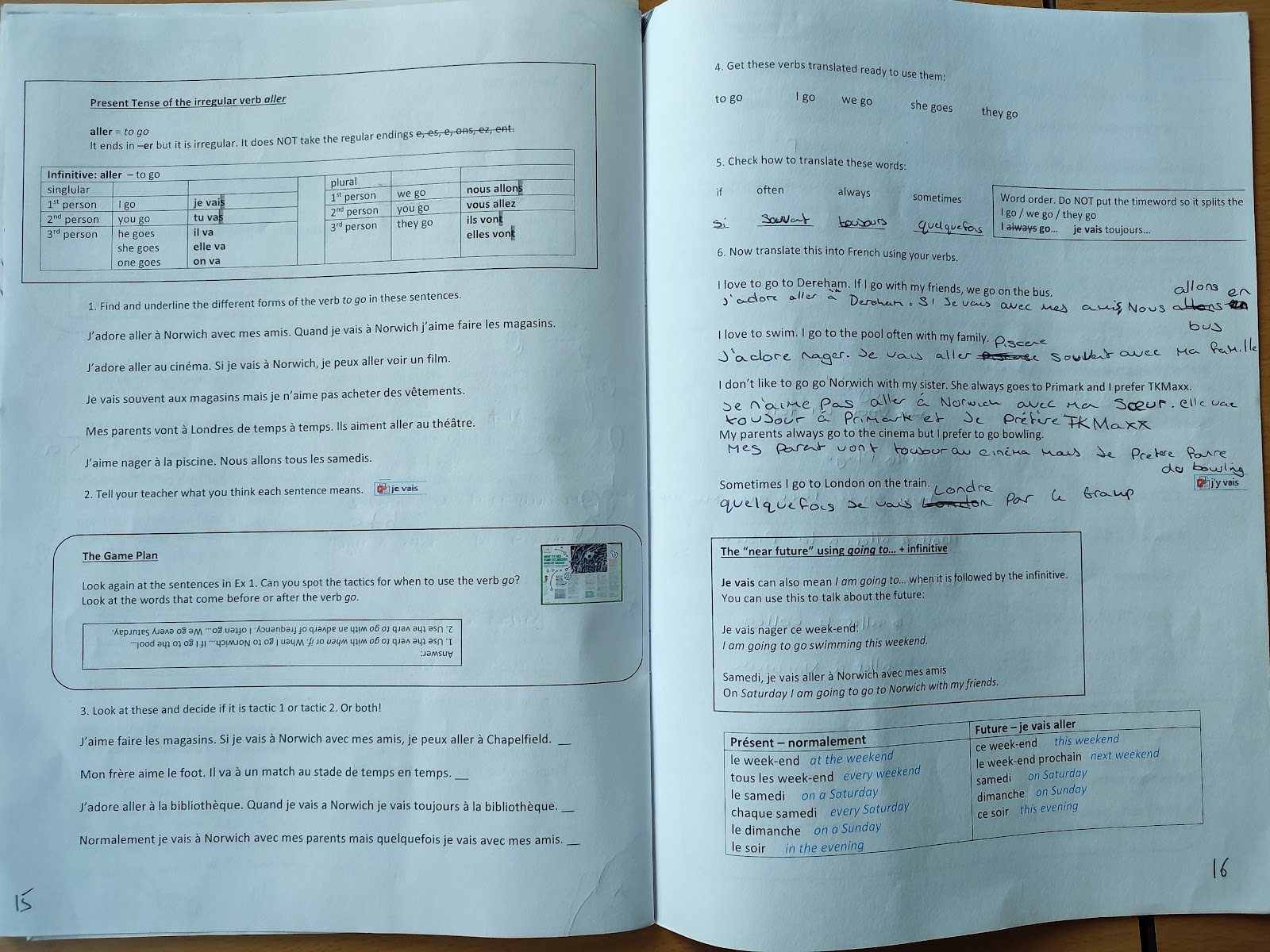A scientific hypothesis has to be tested against reality. And the biggest test is whether it can be used to predict outcomes. Not just to test its validity but for it to be useful, creative and to contribute to a better world. A similar thing can happen with metacognition. Our understanding of the learning process and how we share that understanding with pupils. One of the best ways to do this is through a metaphor. (Spoiler. All theories of cognition rely on metaphor.) A robust metaphor isn't just a description of a concept. It can guide thinking and be extended to knew knowledge and how it is deployed.
I have written before about metaphors which can unlock the language-learning process for pupils. This post is going to look at how the Football Game Plan metaphor for learning to develop extended answers has gone down with my Year 8 class. And importantly, how a tried and tested metaphor took a new twist. A new twist that meant what they were learning fell into place and transformed a piece of knowledge into a new skill they could deploy.
I had already shown them the overall GCSE speaking/writing game plan so they could see how their learning fitted into the overall picture. Here's a Spanish version of the game plan.
You can see there is a defensive half, where pupils have to be able to play out from the back, moving the ball around with confidence. And the attacking half, where pupils can take risks, show off some fancy moves and try to score some goals.
My Year 8 are totally in control in the defensive half.
There's no need to take risks. They can talk all day if necessary without giving the ball away: I like... because I can... but I don't like... if I have to... because I love... and if... then I can... but if... then I prefer... but I don't like... because I can't... and I have to... so if... then I prefer...
Just about all of the girls and most of the boys in my Year 8 class are very keen on football. So it's a nice metaphor to use. There are a few who aren't as obsessed with football, but if they learn a bit about the modern game through their French lessons, then that's all valuable knowledge.
It gives them key tactics - Note the one-two with the if sentences. If it is sunny then I like to go to the beach... but if it rains, I prefer to go to the pool. But it also shapes their attitudes to learning French - Well drilled skills, quick thinking, decision making, control and risk taking.
But this term, it's really clicked with this group. And it's taken care of an element that isn't in the original game plan, and made it work in a way it wouldn't otherwise. I'm talking about conjugated verbs.
You'll notice the preponderance of 1st person verb + infinitive forms in the game plan. My Year 8 French group have been working on er verbs in the present tense. This doesn't fit with the game plan. It's something they learn, but not something they deploy readily enough.
Here's what happened.
We are building a model answer together on the board.
Every pupil in the class will automatically know to pass the ball and move into space with because I can or especially if... Just like this:
What we have here, is a new opportunity. If you mention someone else (in this case mes amis), then that is when you have the chance to use your conjugated verb.
I like to teach pupils this as a rule or as a trigger. When you mention someone else, always follow it up with using a conjugated verb. If you say with my brother... then you can say he... or we... And some pupils get it. But with this Year 8 class, this is where the football metaphor kicked in. With an idea that just clicked and meant the pupils really went for it.
I used the words they will have heard time and time again from their football coach, or seen pundits show in TV analysis: When you mention another person, "even before you receive the ball, you get your head up, have a look, and see what your options are."
You can see how pupils now look at the arrows on the whiteboard in a different way. Instead of being some confusing French words that don't mean much, it's now a range of options for them to pick from as part of a quick decision-making process where they need to be on the ball.
The only thing was. When they started to use it for themselves, it turned out the verb they really needed in the present tense was aller.
Which is lucky. Because that's exactly what's next in the plan!










No comments:
Post a Comment